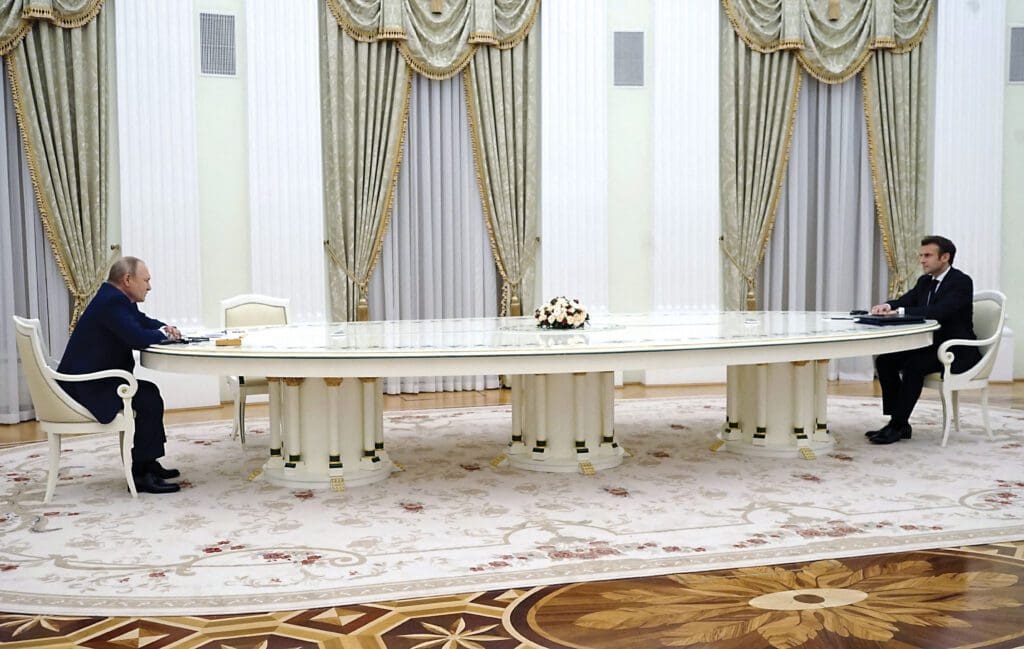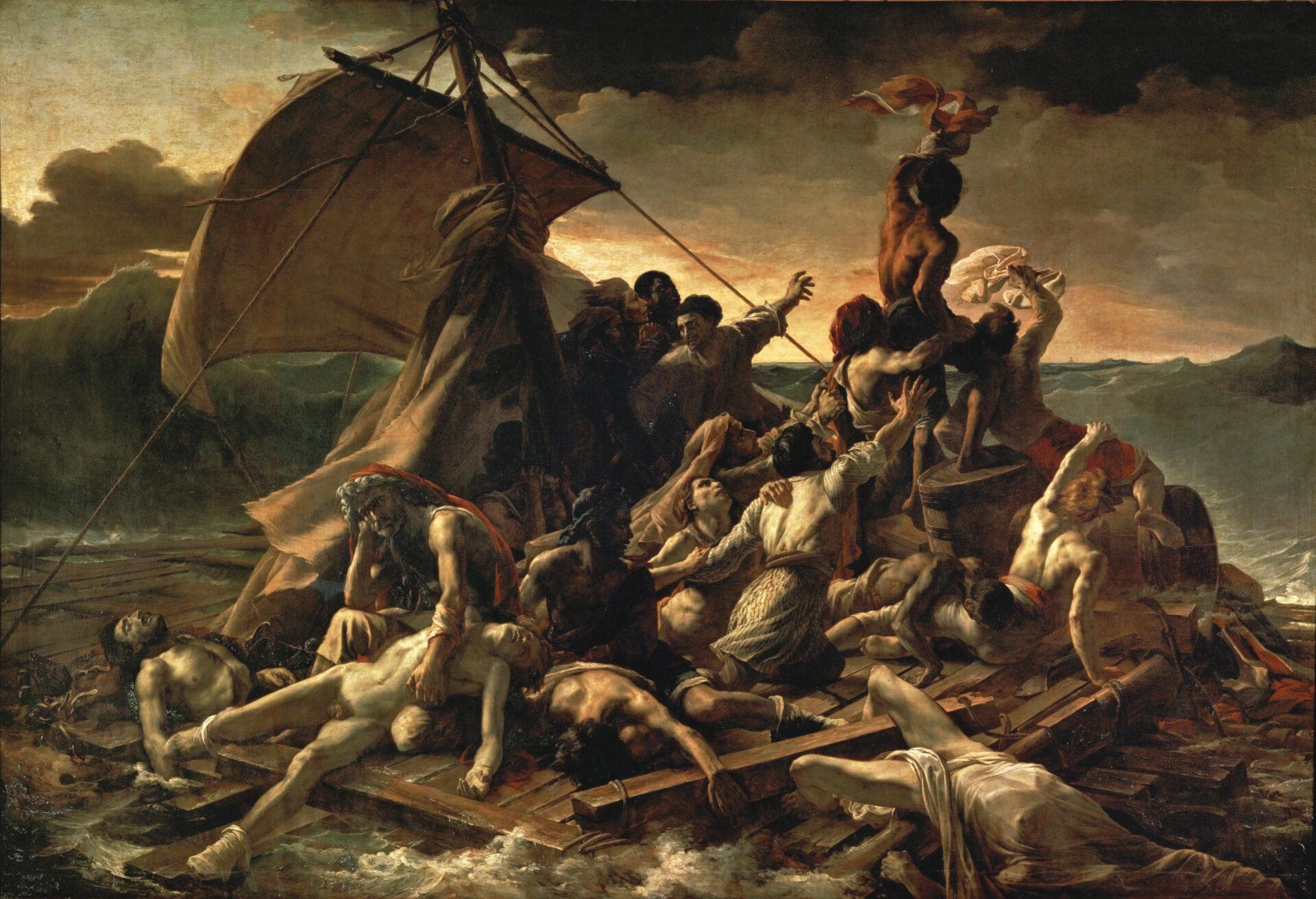Introduction
At the time of writing, 120 days of war in Ukraine have passed. And, although the Western media may not like it, the general trend of ongoing events now seems to be pointing towards a triple victory for Russia in this hybrid war, between itself on the one hand and, by ‘proxy’, NATO and the EU on the other: an economic victory (the total failure of sanctions against Russia, the exponential growth in agriculture, and skilful management of gas and oil revenues); a diplomatic victory (with the reinvigorated BRICS backing Russia, as a kind of modern movement of the ‘non- aligned’); and finally, a military victory against a Ukrainian Army supported by the West, but diminished, exhausted, and demoralized.
In this context, it has to be recognized that ‘official France’ has not excelled in terms of the relevance of its actions or in its statements. This is due to a poor analysis of the causes of the conflict, the total absence of sovereign diplomacy, and is a consequence of absolute submission to American and NATO influences, namely to the American military-industrial lobby.
Clearly under pressure from its traditional allies, France ventured into the Ukrainian conflict uncritically and without restraint. Reacting emotionally, it sided with one of the belligerents, Ukraine, without reflecting for a moment on what the national interest was, and without seeking to situate its actions within the spirit of the Minsk agreements. If France, like the other European powers, had focused more on the application of said agreements by Ukraine, it would probably have been possible to avoid the currently ongoing conflict, which is dramatic and which threatens to spread at any moment, as can be seen from Lithuania’s blockade of Kaliningrad.
1. The Official Position of France, Its Government and Its Diplomacy: a Strategic Error
Pressure from the US and NATO, and the disinformation conducted on a massive scale by the Western media, have clearly conditioned the majority of governments and opinions within the European Union, and France is no exception. In a media environment that has favoured the Kyiv government from the outset, French policy, or at least that of its president, was able to create an illusion temporarily. But this could not last, obviously, when faced with the stark reality of the facts.
President Macron’s hesitations, which are very much in line with his way of doing things, his famous ‘at the same time’ attitude, and the resulting diplomatic gesturing, have led Russian media to invent the Russian verb makronyty, which simply means ‘to talk for the sake of talking’. But the best definition comes from a French geopolitical specialist, Frédéric Lassez:
‘Under the Presidency of Emmanuel Macron, French foreign policy resembles Rimbaud’s drunken boat. Lighter than a cork, it dances on the waves without course or captain. We remember Macron in Moscow in February, holding forth at the end of his long marble table under Putin’s distant and indifferent eye. […] Following some months of hazardous navigation, between calls not to humiliate Russia and deliveries of Caesar howitzers to Ukraine, it was a repentant Macron who then travelled to Kyiv on 16 June to obtain the forgiveness of a magnanimous Zelensky, who absolved him of all his sins. This time, it was promised, no more of his “macronades” (vacillations), but an unwavering commitment alongside Ukraine. This was immediately welcomed by the French press […]. It was like being in the White House, a few weeks ago, when Biden and the Pentagon chief were still announcing Kyiv’s victory with Russia brought to its knees. The problem is that the tide has turned and the tone has changed in Washington since then, even if the French media refuse to recognize it […]. The Washington Post recognized that “despite the surge in outside aid, and strong morale among Ukrainian troops” (on this particular point, we have information to the contrary), “Kyiv and its backers can hope for little more than a stalemate with Russia’s far bigger, better armed military.” And CNN’s star journalist, Fareed Zakaria, commented on 16 June: “It’s time to start thinking about the endgame in Ukraine.” In this context, we can measure the extent to which Macron’s recent warmongering declarations in Kyiv are anachronistic. The man who wanted to be the “master of clocks” has, ultimately, revealed himself as the “master of mishaps”.’1

It would have been more judicious to establish the real French and European interests in this affair but, to do so, to firstly analyse the main objective causes of the conflict. In particular the following:
· the non-compliance with the 2014 and 2015 Minsk agreements by the Ukrainian government created by the Maidan putsch, and the systematic harassment, then open war, in which it engaged in the East of the country against the Russian-speaking populations;
· NATO’s uninterrupted Eastward expansion, with membership for Montenegro in 2017, then for North Macedonia in 2020, the membership process for Sweden, thus breaking with its historical neutrality in 2022, military gesticulation and military exercises, with heavy troop reinforcements, from the Far North to the Balkans (Defender Europe, Swift Response, Thunderlynx, etc.); an Eastward expansion that was clearly perceived as a growing threat by Russia, which has itself been systematically, and consistently, discouraged by the West from any rapprochement since the end of the Soviet Union and President Putin’s rise to power;
· the Russophobia that has been carefully disseminated, encouraged, and maintained in the West by the American military-industrial lobby, its armed wing NATO, the media and the influencers who are affiliated with them.
Instead, French policy—masterfully disavowing the great sovereign diplomacy practised by General de Gaulle in his time—has been characterized by strict subservience to American and German interests, represented by NATO and the EU.2
2. The Attitude of the French Military Commanders: Needless Provocation
Whereas in Italy, the military commanders have managed to keep their distance from the politicians and show their misgivings against the Atlantic Alliance’s vague desires for war, the French high command has unfortunately not managed to adopt the same caution. On the contrary, falling into step behind the political leaders, the senior French military officers, going beyond their role, have engaged in awkward, even very hazardous, gestures.
The recent order of the day of the French Chief of the Defence Staffs (Chef d’état-major des armées, or CEMA, in French) therefore included a certain number of considerations that were partisan, even quite simply false, about the conflict, its origins, and its course but, above all, needlessly insulting for the Russian high command:
‘The Russian military commanders lied. First to their political leaders by letting them believe that the Russian Army’s operational effectiveness would enable them to achieve a swift victory in Ukraine […]. Then to their subordinates, about the goals of the operation, about the situation in Ukraine and, worse still, about their capacity to provide them with the resources to fulfil their missions […]. Last—but probably not least—the military commanders also lied to themselves.’ 3
Besides the extremely undiplomatic aspect of such a statement, and the legitimate resentment it could cause within the Russian high command, such remarks clearly take France out of the essential neutrality in which it should have remained, in a conflict that is not ours. So, we can only regret the ‘warmongering’ declarations of certain active generals.
These statements, revealing a real ‘Natoization’ of minds, are fortunately counterbalanced by those of officers of the previous generation, demonstrating much more restraint, objectivity and … quite simply, pragmatism, if we consider, on the one hand, the Russian Army’s superiority over the Ukrainian Army and, on the other hand, the actual state of the French Army in 2022.
3. The Actual State of the French Army in the Face of a Potential High-Intensity Conflict: a Strong Incentive for Restraint
Since the end of the Algerian War in March 1962, the French Army has been engaged in many external theatres, from Africa (Chad, Central African Republic, Somalia, Rwanda, Côte d’Ivoire, Mali, Burkina-Faso, etc.) to Afghanistan, via the Near East, the Middle East and the Balkans. It has a well-earned reputation as the best army in Europe.
It is an excellent army for managing crises, and low and mid-intensity conflicts. However, it is by no means large or well-equipped enough to face a high-intensity conflict. Despite the wishes expressed by its commanders, its increase in power—even provided the political will to accomplish this is sustained (?)—will not happen overnight. In this regard, it is essential to quote the report by the IFRI (French Institute of International Relations)published in 2021: ‘Mass in the French Armed Forces, a Challenge for High Intensity’.4 It has a clear conclusion: the immediate challenge is that of ‘mass’, in other words, the size of the forces (much too small), in terms of personnel and latest-generation equipment.
Nevertheless, the French Army has many assets: the very high quality of its personnel, their hardiness, their versatility, their cohesion, their experience with modern conflicts, particularly those of an asymmetric nature, and also, of course, its traditions and moral values, the brotherhood of arms, and devotion to the mission up to and including the supreme sacrifice, which are the building blocks of a solid army.
However, it also suffers serious disadvantages, as highlighted in the recent parliamentary information report submitted by parliamentary representatives Patricia Mirallès and Jean-Louis Thiériot.5 All successive governments since the fall of the Berlin Wall (1989) and the collapse of the Soviet Union (1991) have sought to ‘reap the peace dividends’, as Laurent Fabius famously said in June 1990. Over time, the national defence budget has thus become the adjustment variable of the state budget, thus causing serious harm to the military condition but also, particularly, to the necessary volume of recruitment as well as to the essential and substantial outfitting of the French Army with modern and high-performing equipment.
According to a recent report by the French National Audit Office, budgetary constraints are such that ‘the Military Planning Act (Loi de Programmation Militaire, or LPM) 2019– 2025 is not funded for 2023–2025!’6 The Act provides for the 2022 budget (40 billion euros)to be increased by 3 billion for each of the three following years, to reach 50 billion in 2025, equivalent to 2 per cent of GDP, which is the NATO-set target for its member states. However, the planned increases are already coming up against a series of difficulties at the beginning of this five-year term.
The reality, in fact, is limited resources, ageing equipment, which is gradually being renewed but not quickly enough and not in sufficient numbers, and the weaknesses of the defence industry, not to mention, finally, genuine recruitment difficulties.
In his previous position as Chief of Staff of the French Army (Chef d’état-major de l’armée de terre or CEMAT), General Burkhard had already declared that he wanted to prepare the French armed forces for a ‘high-intensity conflict’.7 He repeated this very recently in his order of the day to the French Armed Forces on 22 April 2022.8
The major challenge, therefore, is the French Armed Forces’ capacity to increase in power, particularly if they want to be able to face a powerful adversary, even as part of a coalition. However, the National Court of Audit notes that ‘the restoration of the capacities of the armed forces is not yet complete: The aptitude of the armed forces to conduct a high-intensity conflict over time has not yet been restored.’9
So, given that high-intensity war has reappeared in Eastern Europe, is it really wise to start cutting budgets (300 million euros, two thirds of which was allocated to outfitting the armed forces under the 2022 budget, has just been deducted to fund the economic and social resilience plan following the invasion of Ukraine) rather than increasing them, as was provided for by the Military Planning Act?
Is it wise to withdraw significant resources from the armed forces? Twenty-four Rafale jets have been sold to Croatia and Greece and thus removed from the Air Force’s order of battle! Is it wise to give Ukraine 18 Caesar howitzers (taken from the 76 owned by the Army), thus amputating from the already insufficient capacity of the French artillery?
Let us state the obvious: the government of this second Macron mandate cannot avoid an in-depth analysis of the conditions for an effective increase in the power of the armed forces for the coming decade and the efforts that this implies.
Conclusion: Restoring Real Diplomacy
While the war in Ukraine is being won by Russia, less by the inescapable defeat of Kyiv’s armed forces in the field than by the single decision to cut gas to Germany, thus creating the conditions for an unprecedented energy crisis in Europe, Macron’s France is locking itself into a kind of denial, while continuing its support of Zelensky’s corrupt regime and pretending to believe in the latter’s victory. This just shows how ‘the Natoization’ of minds has reached a high level among French leaders and is thus depriving them of any ability to find information or to make independent and sovereign decisions.
This war, for which full responsibility was a little too hastily attributed to Russia, should never have led the EU, and France in particular, to side with one of the belligerents. This strategic error poses serious risks: the further destabilization of Europe and the risk of igniting new hotbeds of war in Europe and Asia, and also, for Europe, the serious energy crisis we will soon have to confront, with its no less serious economic and social consequences.
It is therefore necessary to immediately use every means at our disposal to end the war, and this will not be achieved by arming and supporting one of the two camps under false pretences. On the contrary, it is necessary to restore the rights of a real, exclusively European, active, realistic, and voluntarist form of diplomacy, which draws pragmatically on the lessons of history and this heightened fever for war.
NOTES
1 Frédéric Lassez, ‘Sortie de crise en Ukraine : Macron, maître des contretemps’ (Exit from the Crisis in Ukraine: Macron, the Master of Mishaps), Boulevard Voltaire (19 June 2022), https://www.bvoltaire.fr/ sortie-de-crise-en-ukraine-macron-maitre-des-contre- temps/. (Translated by the author.)
2 As NATO Secretary General Jens Stoltenberg put it in his speech delivered at the Strategic Concept Seminar on Partnerships on 23 February 2022, ‘NATO and the EU are two sides of the same coin’. See www.nato.int/cps/en/natohq/opinions_ 192377.htm.
3 Chef d’état-major des armées (CEMA), ‘Order of the Day No. 13’, 22 April 2022.
4 Raphaël Brillant, Jean-Baptiste Florant, and Michel Pesqueur, ‘La masse dans les armées françaises, un défi pour la haute intensité’ (Mass in the French Armed Forces, a Challenge for High Intensity), Etudes de l’IFRI, Report No. 105 (2021).
5 Patricia Mirallès and Jean-Louis Thiériot, ‘Information Report No. 5054 of the French National Assembly delivered on 17 February 2022 by the French National Defence and Armed Forces Committee’, 17 February 2022.
6 ‘Report by the French National Court of Audit on the Military Planning Act 2019–2025 and the Capacities of the Armed Forces’, 11 May 2022.
7 General Burkhard, ‘We Must Be Ready for High Intensity’, interview in Le Figaro (7 October 2020).
8 General Burkhard, ‘if the circumstances require it, being ready to engage in a high-intensity confrontation’, quoted from CEMA, ‘Order of the Day No. 13’, 22 April 2022.
9 ‘Report by the French National Court of Audit on the Military Planning Act 2019–2025’.








